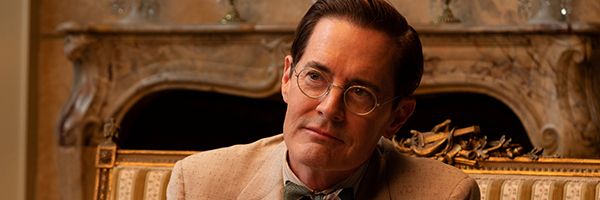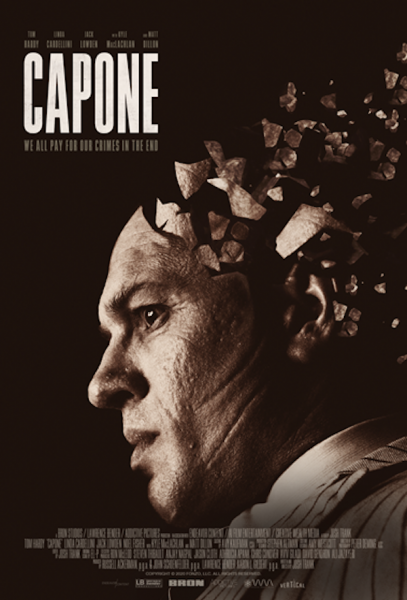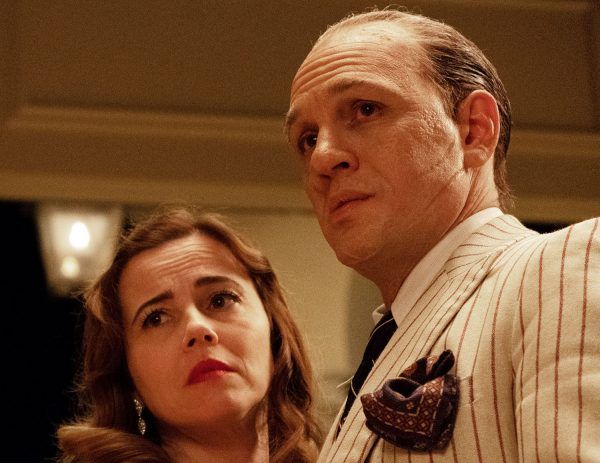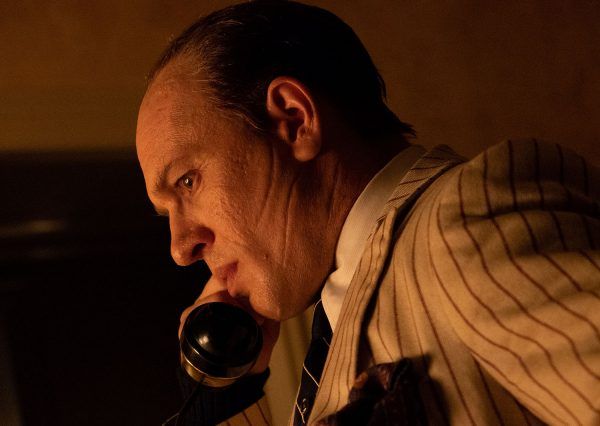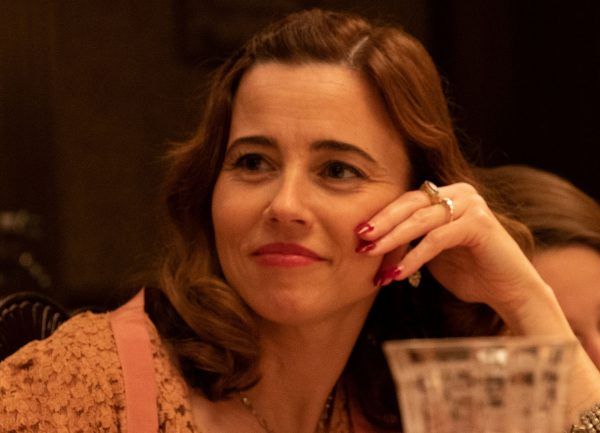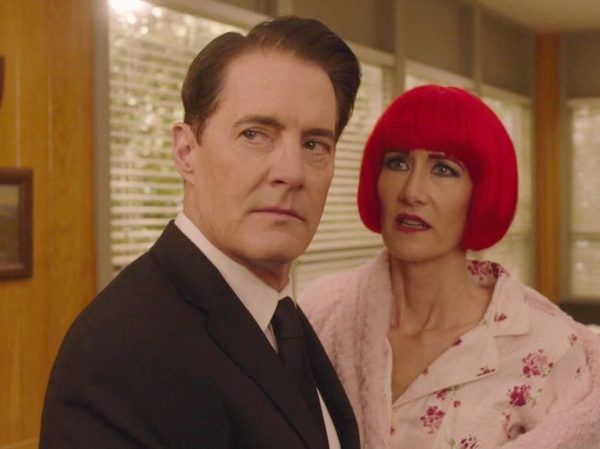From writer/director Josh Trank, the indie drama Capone is a look at the most infamous and feared gangster of legend, at a time in his life when he was suffering from rapidly advancing dementia caused by untreated syphilis. After serving 11 years for tax evasion, Al Capone (Tom Hardy) returns to his life with his wife (Linda Cardellini), as his memories drift between his violent and brutal past and his present, at the age of 47.
During this 1-on-1 phone interview with Collider, actor Kyle MacLachlan (who plays Dr. Karlock, a fictional character based on Capone’s personal physician), talked about what he thought of this approach to telling Capone’s story, why he found this character intriguing, why he trusted Josh Trank’s vision for the film, and the experience of sharing scenes with Tom Hardy. He also talked about his collaborative history with David Lynch, what it was like to audition for Dune, how much he appreciates being identified with his Twin Peaks role, and his upcoming projects.
Collider: This is not the story that you would expect from a film about Capone. What was your first impression, reading the script? What did you think of the way this story was told?
KYLE MacLACHLAN: Well, I completely agree with you. I felt the same way. Many people have played Capone in, I wouldn’t say a traditional way necessarily, but as the gangster and all of those things. No one has approached it from this side of things. So, I was curious to see what Tom [Hardy] was gonna do with the role and how he seemed intent on really immersing himself in this character, in this period of time. It was really difficult to watch, in some scenes, as my character and as the actor, just watching him go through this torture. I, like you, had a real curiosity to see why this angle and why this perspective.
What did you see, in this character, that you found intriguing? What was it about him that made you feel like there was something you could bring to him?
MacLACHLAN: It really was where he stood on whether he was care-taking and empathic and helpful and just a genuinely good person, or if there were other motivations and how those came out. I haven’t seen the finished film yet, so I don’t know exactly how it was edited, but I remember thinking walking the line between is he a friend or is he really in there as a spy, that revealing those different layers would be interesting. Plus, the cast that had been assembled was interesting to me, with Tom, of course, but also with Linda Cardellini and Matt Dillon. I just thought it was a really interesting group of people and wanted to go be a part of that family for awhile.
Is there also a fun in playing a fictional character in a real life story, so that you don’t have to feel beholden to researching one specific person or figuring out who one specific person was?
MacLACHLAN: He is loosely based on a doctor that did exist, that was taking care of Capone and who was a little shady, but that’s as far as I took it. I really was more interested in seeing what purpose he was serving in the movie, so there was some freedom there. I feel like I’ve had a run of historical characters, between that guy, and the Thomas Edison that I played in Tesla with Ethan [Hawke], and then I have one coming out, called Atlantic Crossing, in which I play FDR. I’ve been playing a lot of real characters, which has been interesting.
Is there another real-life character that you’d like to play?
MacLACHLAN: Oh, man. Considering that we’re in the middle of the coronavirus right now, my hair is getting really long. With the crazy white hair, I could probably do Andrew Jackson, or anyone from that period of time.
When did you first meet or have a meeting with Josh Trank, and what was it about his vision for this film, as the writer/director, that you found interesting?
MacLACHLAN: We had a conversation on the phone. I’d read the script and I thought it was really a different perspective on things. I really liked the movie he did, Chronicle. I thought it was really interesting and I liked where the story went because it felt believable to me that, with these great gifts that these characters got, in the story, they were also great burdens and not could handle the gift. If you say, “What superpower do you wanna have?,” someone says, “Oh, I wanna do this. I wanna do that.” But along with that, comes the opposite. I thought that was just a really interesting point of view. I felt he was gonna do something cool with this, based on that film, because he’s just got a great way of looking at things. Between that and the cast that he had put together, I thought it could be really cool, so I wanted to see what would happen.
What was it like to be in the moment with Tom Hardy and see the transformation that he decided to take on for this character?
MacLACHLAN: As you can imagine, it was phenomenal. You’d see Tom like Tom, and then, after the make-up transformation, he would come out, and the Tom that I knew didn’t exist. He completely, truly changed, his voice and everything. It was impressive. During the breaks in between filming, he was jovial and fun, great at storytelling, and just easygoing, and it was really interesting to watch him transform into the character. He really did a phenomenal job.
Twin Peaks is my all-time favorite TV show and will always be, and it’s something that you’ll always be identified with, along with all of the other work you’ve done with David Lynch. Is that something that you’ve always been good with, or is that something that you’ve grown to appreciate?
MacLACHLAN: I know what you’re saying, and it has so much to do with age and perspective. When I was a young man, in 1989 and 1990, when we did Twin Peaks, I loved it, of course. I was so happy. I loved the character. I loved being that character. When it was finished, I don’t know if I really appreciated just how great the character was, or how great he was going to be. As an actor, you wanna be known as being able to do this and that and something else, and you wanna have your latest work be the thing that you’re known for. People were always referring to Twin Peaks, and that wasn’t a frustration, but I was like, “I really wanna do other roles and things that are gonna have that kind of impact.” As I’ve gotten older and my appreciation for it has grown, I’ve embraced it more. I feel so incredibly fortunate to have had that role and to be identified so strongly with that role. Many actors go for years, and some for their entire careers, and they’re great actors, but they don’t have that same kind of resonance with the audience. That’s really the thing that I appreciate. People love this character, and I am so happy that they do.
When you did Dune and Blue Velvet, they were so early on in your career that you must have gone through some sort of audition process, at least for Dune. What was it like, the first time you met David Lynch and what was it like to audition for him? Does he do a straightforward audition process
MacLACHLAN: David does everything his own way. When I met him for Dune, I’d been out of acting school for not even a year, and I met him in his offices at Universal Studios, at the time, where they were prepping for Dune, and we had a really, really great conversation, just chatting about things we had in common. He asked me some questions about me, and I was asking some questions about him. We really just had a chat, like when you’re meeting someone, for the first time. And then, at the end of that, he said, “Here’s the script. I’d like you to come back in a few days and we’ll screen test a few scenes.” And I said, “Okay.” Now, I’d never been in front of a camera before, in my life, and I didn’t know what a screen test was. So, I went back to Seattle where I was from. I was doing a play, at the time, and I finished up the play and they put the understudy in. And then, I flew back down to Los Angeles, two days later, and I got in front of the camera, with hair and make-up and wardrobe, and that was it. David was my director and he made me feel incredibly at home and at ease. That’s how it started. That was the beginning of a beautiful friendship.
Were there ever any projects of his, over the years, that he wanted you to be involved with, but you weren’t able to for scheduling reasons, or did you always find a way to work with him when the opportunity arose?
MacLACHLAN: If he wanted me for something, yeah, then I was definitely available. Between Dune, Blue Velvet and Twin Peaks, that’s three pretty special special ones. I really, really feel fortunate, and really grateful.
You’ve been a part of so many interesting, memorable, and varied projects, throughout your career. Has your acting career turned out anything like you’d imagined or hoped it might, when you started down this path? What would the younger you, turning up on his first film set, think about the career that you’ve had since then?
MacLACHLAN: My whole career is unexpected. From the very beginning of acting school, my focus was on theater and, believe it or not, musical theater. That’s what I was gonna do. I was headed to New York, and it was only a few months before I was supposed to go to New York from Seattle, that the casting option for Dune came along and, suddenly, I found myself in Los Angeles, doing movies and television. I’ve done the stage along the way. Not a lot, but a little bit. That was my roots. I had no intention of doing stuff in film and television, when I was just beginning and when I was in my training, so it’s been a real change of direction.
What’s been keeping you busy, while we’re all stuck at home? Are you someone who’s developed a routine? Are you making bread, like so many people seem to be? Are you binge-watching TV shows?
MacLACHLAN: I kind of have a routine. I get up and my son is 11, so he has school via Zoom. He’s in school in New York, so I get him situated. I do a little bit of working out. I spend a lot of time working. I have a winery that I own in Washington state, so I spend a lot of time talking to the various people that are working for me. You can do a lot of stuff on the phone and virtual, of course, so that takes up some time. And then, I’m also the cook in the family, so I make the food for breakfast, lunch and dinner, and that takes time. I’m in L.A., which is great, and I have a little garden, so I’ve been outside messing around. The days are pretty peaceful, unless I go out, and then you’re cautious, of course, and it’s a little strange.
You’re not reading a ton of scripts, or things like that?
MacLACHLAN: No, not much. I know people are writing and prepping stuff, but from the acting side of things, and I don’t know if other actors are having the same experience, I’m just waiting, hungry, ready to read, and ready to go to work, when they finally figure out what shape that’s gonna take and what form that’s gonna take. I think we’re all in the same boat.
It sounds like your portrayal of Franklin D. Roosevelt in Atlantic Crossing might be the next thing we get to see you in. How do you approach a character like that? Do you try to strip away all of the intimidating and daunting aspects, and figure out who he is, as a person?
MacLACHLAN: The next thing that will probably be out will be Tesla, which I think will be in the later part of the summer. But for Roosevelt, yeah, it was very much that and reading about him, watching video, and hearing his story. And then, trying to put myself in his situation and imagining how what he went through transformed him and affected him. It was pretty much just trying to put yourself in his skin, really. That’s what I tried to do.
When you were playing Thomas Edison, what did you learn about him?
MacLACHLAN: Generally, he’s painted as a bully, and I’m not disagreeing with that, but he was more than that. He had a real soft, sensitive side. He kept a diary for a short period of time, during the summer, and we have that. You can see the romanticism in him, and you can see the flights of fancy and the way his mind worked, in a different way than within the scientific community. I thought that was very revealing. He was just remarkable, on a number of levels. In some ways, he was a bulldozer. He just would get down to it and plod along, and not stop until he had an answer. He was a workaholic. His family situation was not good. His first wife passed away. It seems like there’s a common thread, in some of these characters, that there’s a death and the wife dies young and something happens. It’s something that affects them, early on, and it was true of Tesla, as well. Edison was affected by the death of a childhood friend, when he was young. Roosevelt had the tragedy of coming down with polio. He wasn’t a young man, he was a little older. The impact of these life-changing events for these people, it throws them into a different place. So, my job was to imagine what that impact would be.
Capone is available on-demand.

